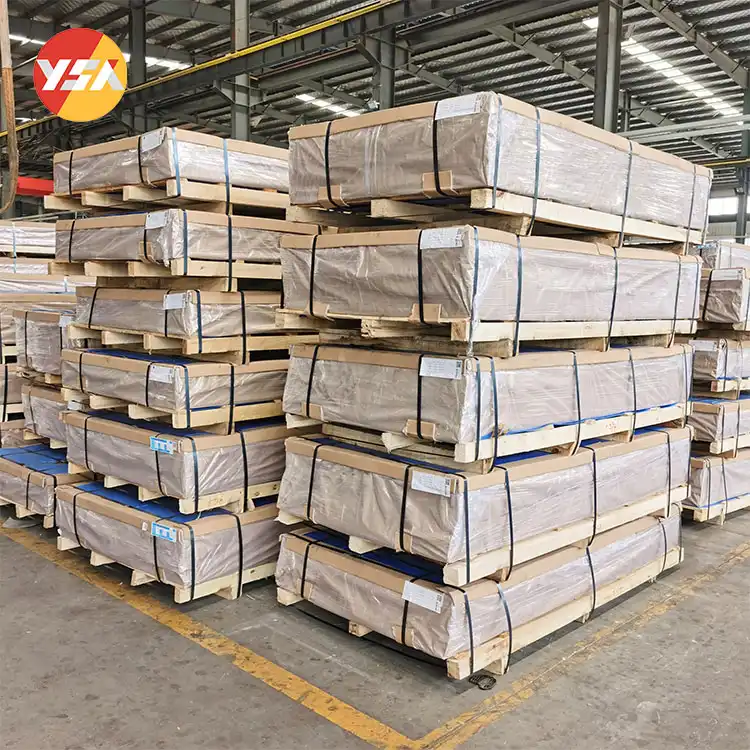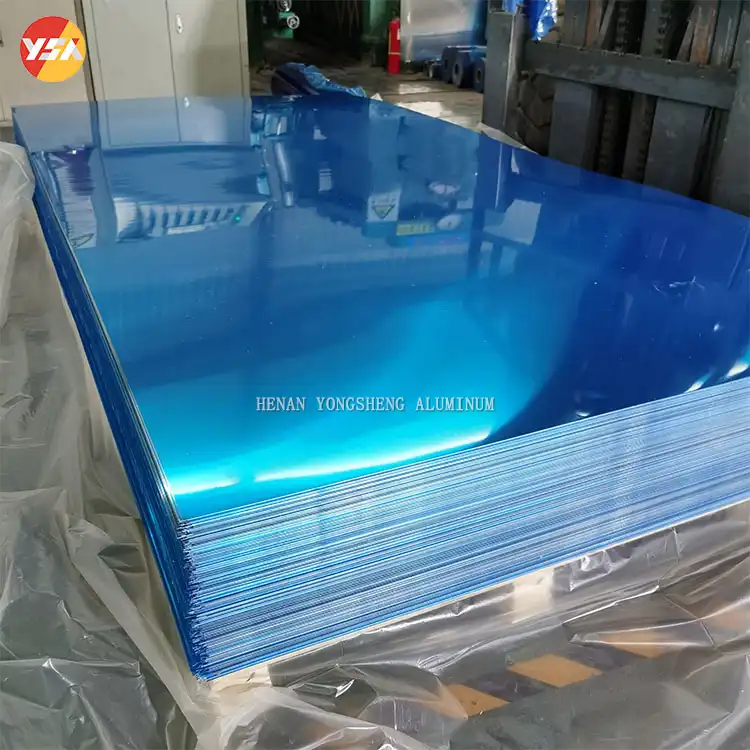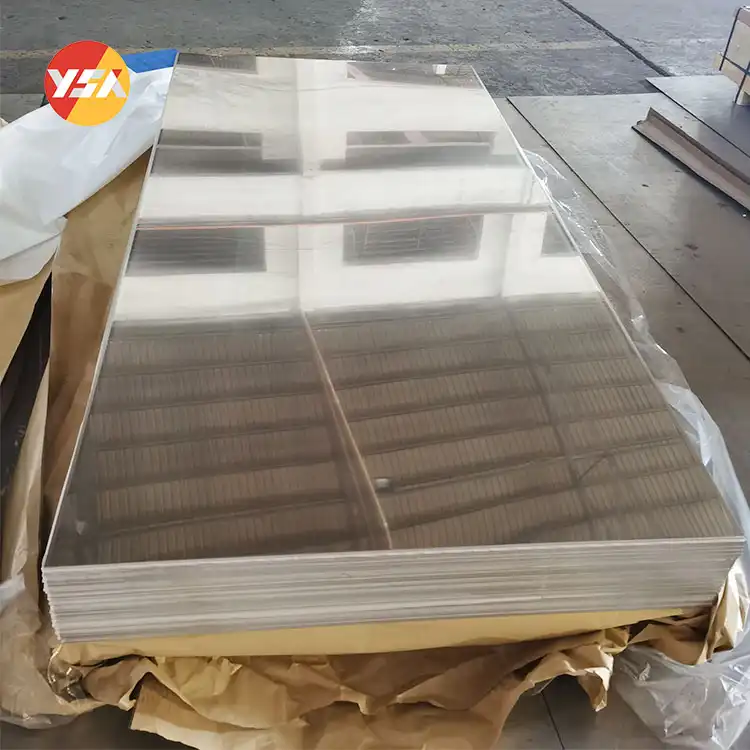7075 vs 6061 aluminum are two popular option due to high-strength. As we all know, aluminum is a versatile material known for its lightweight nature and excellent strength-to-weight ratio. In this blog, we will delve into the characteristics, properties, and applications of both alloys to determine which one is stronger.
7075 Aluminum Overview
7075 aluminum is a high-strength alloy knowned for its impressive strength properties. It belongs to the 7000 series of aluminum alloys and is primarily composed of aluminum, zinc, and small amounts of copper, magnesium, and chromium. The alloy shows exceptional strength, good fatigue resistance, and is generally used in applications that need high structural integrity and durability. Industries such as aerospace, defense, and sporting goods frequently utilize 7075 aluminum for its outstanding performance.

6061 Aluminum Overview
6061 aluminum is another extensively used alloy known for its strength and versatility. It belongs to the 6000 series and is composed of aluminum, magnesium, and silicon. 6061 aluminum provides good strength, excellent corrosion resistance, and is highly weldable. It finds applications in a wide range of industries, including construction, automotive, and marine. Its availability in various tempers and its workability make it a popular choice for both structural and decorative applications.

7075 VS 6061 Aluminum Properties Comparison
7075 VS 6061 Aluminum Physical Properties
| Property | 7075 Aluminum | 6061 Aluminum |
| Density | 2.81 g/cm³ | 2.70 g/cm³ |
| Melting Point | 477-635°C (890-1175°F) | 582-651°C (1080-1204°F) |
| Thermal Conductivity | 130-160 W/m·K | 150-200 W/m·K |
| Electrical Conductivity | 33-42 MS/m | 43-54 MS/m |
| Young’s Modulus | 71-82 GPa (10,300-11,900 ksi) | 68.9 GPa (10,000 ksi) |
7075 VS 6061 Aluminum Chemical Composition
| Element | 7075 Aluminum Alloy | 6061 Aluminum Alloy |
| Aluminum (Al) | 87.1 – 91.4% | 95.8 – 98.6% |
| Zinc (Zn) | 5.1 – 6.1% | 0.25 – 0.6% |
| Magnesium (Mg) | 2.1 – 2.9% | 0.8 – 1.2% |
| Copper (Cu) | 1.2 – 2.0% | 0.15 – 0.4% |
| Chromium (Cr) | 0.18 – 0.28% | 0.04 – 0.35% |
| Silicon (Si) | 0.20 – 0.6% | 0.4 – 0.8% |
| Iron (Fe) | 0.50% (max) | 0.7% (max) |
| Manganese (Mn) | 0.30% (max) | 0.15% (max) |
| Titanium (Ti) | 0.20% (max) | 0.15% (max) |
| Other | 0.05% (each), 0.15% (total) | 0.05% (each), 0.15% (total) |
7075 VS 6061 Aluminum Mechanical properties
| Property | 7075 Aluminum Alloy | 6061 Aluminum Alloy |
| Tensile Strength | 570-780 MPa (83,000-113,000 psi) | 276-310 MPa (40,000-45,000 psi) |
| Yield Strength | 460-660 MPa (67,000-96,000 psi) | 110-276 MPa (16,000-40,000 psi) |
| Elongation at Break | 8-16% | 6-18% |
| Modulus of Elasticity | 71-82 GPa (10,300-11,900 ksi) | 68.9 GPa (10,000 ksi) |
| Shear Strength | 331 MPa (48,000 psi) | 207 MPa (30,000 psi) |
| Hardness (Brinell) | 150-170 HB | 60-95 HB |
| Fatigue Strength | 160 MPa (23,000 psi) for 500 million cycles | 96 MPa (14,000 psi) for 500 million cycles |
7075 VS 6061 Aluminum Application Comparison
| Application | 7075 Aluminum Alloy | 6061 Aluminum Alloy |
| Aerospace | Aircraft structures, wing spars, fuselage frames, and bulkheads | Aircraft fittings, wing panels, and structural components |
| Defense | Missile and rocket components, military aircraft applications | Ammo casings, armored vehicles, and weapon systems |
| Sporting Goods | Bicycle frames, baseball bats, rock climbing equipment | Bicycle components, fishing reels, and sporting equipment |
| Automotive | High-performance car parts, suspension components | Engine parts, radiator tanks, and automotive trim |
| Marine | Marine fittings, boat hulls, and components | Boat fittings, marine structures, and offshore equipment |
| Construction | Structural components, bridges, and high-rise buildings | Architectural extrusions, window frames, and curtain walls |
| Machinery and Equipment | Tooling plates, gears, and machine parts | Conveyor systems, hydraulic systems, and general machinery |
| Electrical | Electrical connectors and conductors | Electrical enclosures, heat sinks, and electronic hardware |
| Consumer Goods | Camera parts, musical instruments, and smartphone frames | Bicycle frames, furniture, and aluminum cans |
7075 VS 6061 Aluminum Price Comparison
In general, 7075 aluminum is considered to be more expensive compared to 6061 aluminum. This is due to several factors, including the higher cost of the alloying elements used in 7075 aluminum, such as zinc and copper. Additionally, 7075 aluminum is known for its superior strength properties, making it suitable for demanding applications that require high strength and durability. On the other hand, 6061 aluminum is more readily available and offers a good balance of strength, machinability, and corrosion resistance at a relatively lower cost. The price difference between the two alloys can vary depending on factors such as market conditions, location, quantity purchased, and supplier.

7075 VS 6061 Aluminum, Which is Stronger?
7075 aluminum alloy typically has a tensile strength ranging from 570 to 780 MPa (83,000 to 113,000 psi) and a yield strength ranging from 460 to 660 MPa (67,000 to 96,000 psi). On the other hand, 6061 aluminum alloy has a lower tensile strength, ranging from 276 to 310 MPa (40,000 to 45,000 psi), and a yield strength ranging from 110 to 276 MPa (16,000 to 40,000 psi).
It’s important to note that the alloys’ specific strength values can vary based on factors such as temper, processing, and other alloying elements. However, in general, 7075 aluminum offers higher strength capabilities compared to 6061 aluminum.
It’s worth considering that while 7075 aluminum is stronger, it may also be more challenging to work with due to its higher strength and hardness. Additionally, other factors such as weight, corrosion resistance, cost, and specific application requirements should also be taken into account when selecting the appropriate alloy for a given project.

Common Aluminum Alloy Strength Comparison
| Aluminum Alloy | Tensile Strength (MPa) |
| 1100 | 75-110 |
| 2024 | 310-470 |
| 3003 | 85-180 |
| 5052 | 210-260 |
| 6061 | 240-310 |
| 7075 | 570-780 |
7075 VS 6061 Aluminum, How to Choose?
When choosing between 7075 vs 6061 aluminum alloys, consider the specific application scenarios. If you require high strength for aerospace or defense applications, 7075 aluminum is a preferred choice due to its superior strength properties. For applications where weight reduction is crucial, such as in the automotive or aerospace industries, 6061 aluminum’s lighter weight makes it a suitable option. If you prioritize ease of machining, 6061 aluminum’s excellent machinability makes it a favorable choice. When corrosion resistance is a key consideration, especially in marine or outdoor applications, 6061 aluminum’s better corrosion resistance is advantageous. Additionally, cost-effectiveness may also play a role, as 6061 aluminum tends to be more cost-effective compared to 7075 aluminum.

FAQ
What drawbacks does aluminum 7075 have?
The primary drawbacks of 7075 aluminum are that it is more expensive than other aluminum alloys and has a lesser corrosion resistance than some other alloys. But these disadvantages are frequently offset by its exceptional strength characteristics, which make it the best option in situations where strength is essential.
Which is more brittle, 7075 vs 6061 aluminum?
Aluminum 7075 is generally not thought to be more brittle than 6061 aluminum. Both alloys are generally resistant to brittleness and show good toughness. However, in some situations, 7075 aluminum may be more prone to stress corrosion cracking; this should be considered in particular applications.
Does 7075 aluminum rust?
7075 aluminum is not prone to rust like ferrous metals such as iron or steel. However, it is important to know that aluminum can still experience corrosion, albeit in a different form. When exposed to certain environments, 7075 aluminum can undergo a process called corrosion, resulting in the formation of a thin layer of aluminum oxide on its surface. This layer acts as a protective barrier, preventing further corrosion.
Is 7075 aluminum as strong as steel?
7075 aluminum is not as strong as most steel alloys. While it has high strength for an aluminum alloy, steel generally provides higher strength properties.
Why can’t 7075 be welded?
7075 aluminum can be welded, but it presents challenges owing to its high strength and low weldability compared to other aluminum alloys. It is prone to cracking during welding, especially in the heat-affected zone, which requires careful control of welding parameters and techniques to achieve successful welds.


